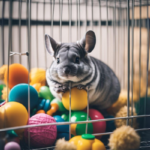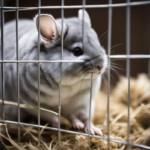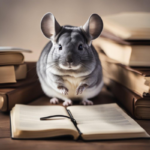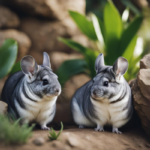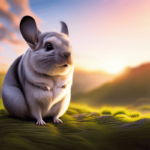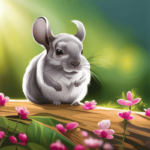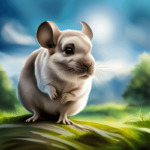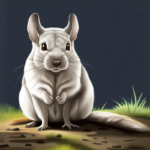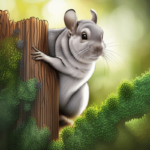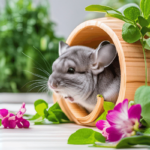Are you a proud chinchilla owner, looking for the best ways to keep your furry friend healthy and happy? One of the key aspects of chinchilla care is providing them with the right food. In this in-depth guide, we’ll explore the world of “chinchilla-safe food” to ensure your adorable pets get the nutrition they deserve. From their dietary needs to potential hazards, we’ve got it all covered.
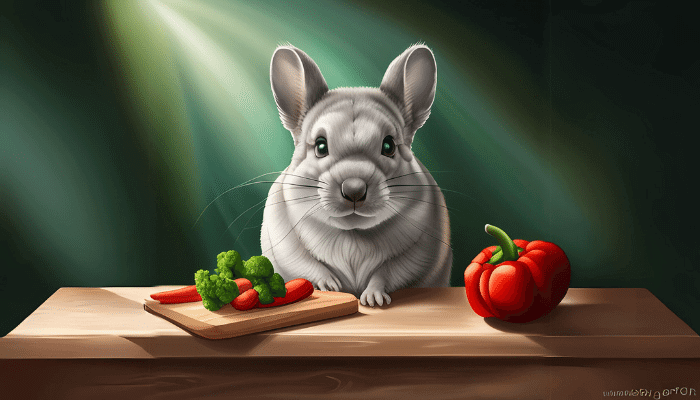
Introduction
Chinchillas are delightful little creatures known for their soft, velvety fur and endearing personalities. These small rodents are native to the Andes Mountains in South America, and they have specific dietary requirements to thrive in captivity. In this article, we will delve into the world of chinchilla-safe food to help you ensure your furry friends stay healthy and happy.
Chinchilla Safe Food: What Can Your Pet Eat?
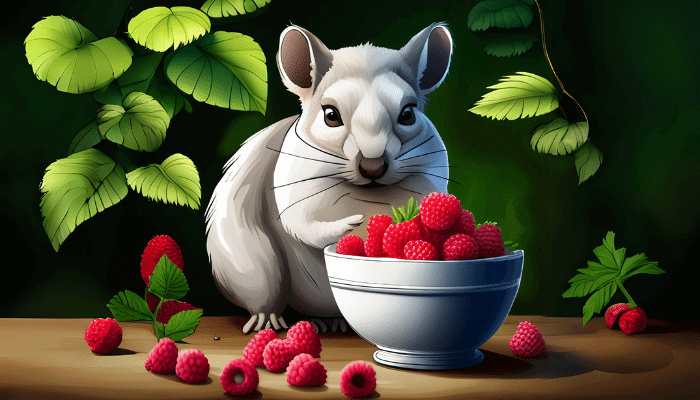
Chinchillas are herbivores, which means their diet should primarily consist of plant-based foods. Their sensitive digestive systems require careful consideration of what they eat. So, what are the basics of chinchilla safe food?
High-Fiber Hay: The Cornerstone of a Chinchilla’s Diet:
Chinchillas require an abundant supply of high-quality hay. Hay serves as the primary source of fibre, which is essential for their digestion. It helps keep their teeth healthy and wears them down naturally. Timothy hay, orchard grass hay, and meadow hay are excellent choices.
Pellets: Balancing the Diet:
Quality chinchilla pellets should be part of their diet. Look for options with no additives or fillers, ensuring they receive balanced nutrition. Be mindful of portion control, as overfeeding can lead to obesity.
Fresh Water: Hydration is Key:
Don’t forget that fresh, clean water is a crucial part of a chinchilla’s diet. Make sure they always have access to a water source. Use a sipper bottle to keep their water clean and prevent spills.
Occasional Treats: A Little Indulgence:
Chinchillas enjoy treats, but moderation is key. You can offer small amounts of dried fruits like apple slices or raisins, but be cautious as these are high in sugar. Treats should be an occasional delight, not a daily feast.
Safe Greens: Fresh Veggies for Variety:
Chinchillas can enjoy a variety of fresh vegetables like kale, spinach, and broccoli. However, these should be given in small amounts, as excessive greens can cause digestive problems. Always introduce new veggies gradually to prevent upset stomachs.
What Foods are Not Safe for Chinchillas?
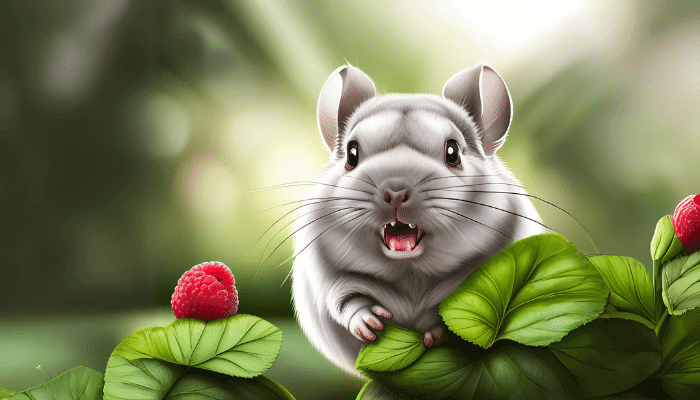
High-Calcium Foods: A Risk to Health:
Foods high in calcium, such as dairy products and high-calcium greens like parsley, can lead to kidney stones and other health issues in chinchillas. Steer clear of these to keep your pet safe.
Sugary and Salty Snacks: An Unhealthy Choice:
Chinchillas are prone to diabetes, and sugary or salty snacks like candy or chips can have serious consequences. Keep these far away from your pet’s diet.
Fresh Fruits: Use in Moderation:
While dried fruits can be an occasional treat, fresh fruits are generally too high in sugar for chinchillas. Stick to the dried varieties and only in small portions.
Nuts and Seeds: A Choking Hazard:
Nuts and seeds may seem like a healthy choice, but they can be a choking hazard for chinchillas. These should be avoided entirely.
Human Food: A Big No:
Chinchillas should never be given human food, which can contain spices, preservatives, or ingredients that are harmful to them.
Why is Chinchilla Nutrition So Important?
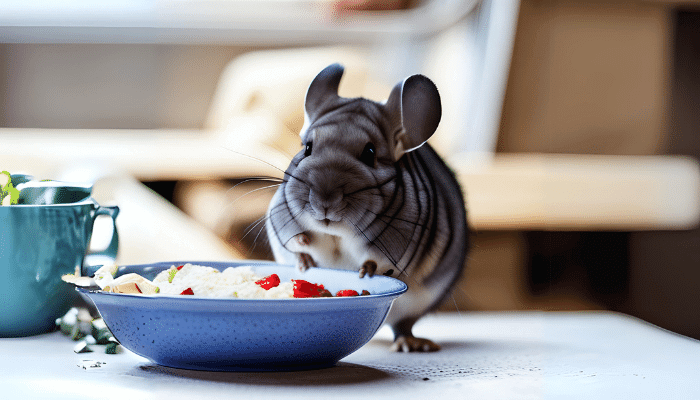
Chinchillas may be small, but their dietary needs are enormous! Understanding why proper nutrition matters is the first step in ensuring your pet’s well-being.
Chinchillas have sensitive digestive systems, and a diet high in fibre is essential. Fibre helps prevent gastrointestinal issues and keeps their teeth healthy.
The Role of Fiber in a Chinchilla’s Diet: Fiber isn’t just a part of the chinchilla’s diet; it’s the cornerstone. Chinchillas are hindgut fermenters, meaning fiber is crucial for proper digestion. Their unique digestive system relies on a steady intake of fiber to function optimally.
Fiber’s Functions in a Chinchilla’s Diet:
- Gut Health: Fiber aids in the movement of food through the chinchilla’s digestive tract, preventing blockages and ensuring optimal nutrient absorption.
- Dental Health: Chinchillas’ teeth never stop growing, and chewing on fibrous foods helps keep their teeth from overgrowing.
- Weight Control: High-fiber diets help chinchillas maintain a healthy weight and prevent obesity.
- Mental Stimulation: Chewing on fiber-rich foods provides mental stimulation for your chinchilla, reducing boredom.
What Should Be Included in a Chinchilla’s Diet?
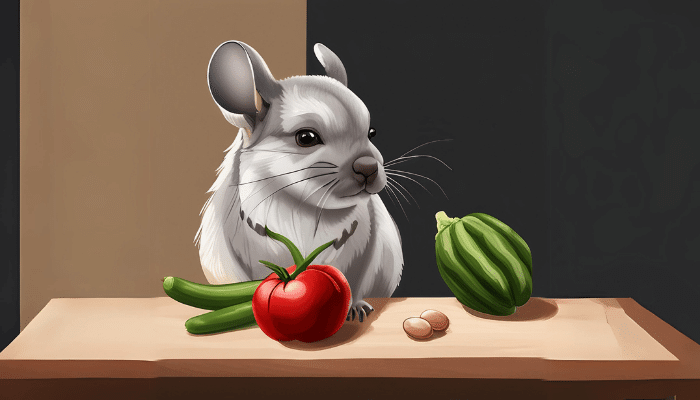
Chinchillas thrive on a diet that consists primarily of high-fiber hay. However, there are other components that should be a part of their diet for a well-rounded nutritional profile.
1. High-Quality Hay
As the mainstay of your chinchilla’s diet, high-quality hay should be available at all times. Timothy hay and meadow hay are excellent choices. Make sure it’s fresh and free from mold.
Pro Tip: Ensure your chinchilla always has access to hay to satisfy its chewing needs and maintain a healthy gut.
2. Pellets
Chinchilla pellets are specially formulated to meet their nutritional needs. Look for pellets with a high fiber content (18-20%) and low protein and fat content.
Warning: Avoid pellets with nuts, seeds, or colored bits, as these can be high in fat and not suitable for chinchillas.
3. Fresh Water
Fresh, clean water is a must for your chinchilla. Use a sipper bottle to ensure they have a continuous supply.
Important: Check the sipper bottle daily to ensure it’s working correctly and not clogged.
4. Occasional Treats
While hay and pellets are the staples of your chinchilla’s diet, you can offer occasional treats like a small piece of dried apple or rose hips. However, these should be limited to prevent overindulgence.
Chinchilla Safe Food: A Sample Diet Plan
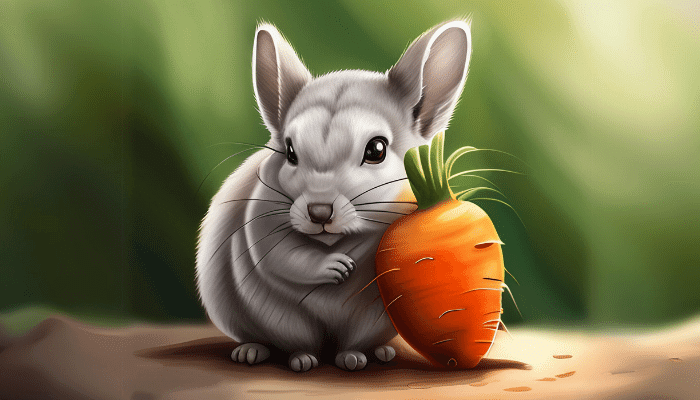
Now that we’ve covered the basics, let’s delve deeper into crafting the best diet for your chinchilla to keep them healthy and happy.
The Chinchilla Diet: A Balanced Plate
Think of your chinchilla’s diet as a well-balanced plate. Just like humans, they need a mix of nutrients to thrive. Here’s a breakdown of what their plate should look like:
| Food Group | Recommended Portion |
|---|---|
| Hay | 75-80% of the diet |
| Pellets | 15-20% of the diet |
| Treats | Minimal, as occasional treats |
| Water | Always available |
Note: A balanced diet ensures your chinchilla receives the right mix of nutrients, fibers, and proteins.
Creating a Feeding Schedule
Establishing a feeding schedule is crucial for maintaining your chinchilla’s health. Chinchillas are crepuscular, which means they are most active during dawn and dusk. As such, they are more inclined to eat during these times.
Here’s a sample feeding schedule to keep your chinchilla content:
- Morning: Provide fresh hay and check the water supply.
- Evening (Dusk): Offer a small portion of chinchilla pellets.
- Night (Before Bed): Present fresh hay and ensure the water sipper is functional.
The Importance of Safe Food for Chinchillas’ Teeth
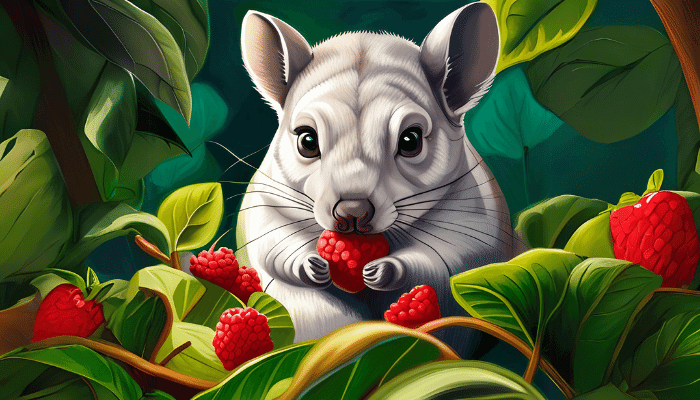
Chinchillas have teeth that continually grow throughout their lives. Feeding them appropriate food is essential to ensure their teeth wear down naturally, preventing dental issues.
Chinchilla Safe Food: Ensuring Digestive Health
Chinchillas have sensitive digestive systems, so it’s crucial to maintain a healthy diet. High-fiber hay is essential to keep their digestive tracts functioning optimally.
The Role of Fresh Water in a Chinchilla’s Diet
Chinchillas require a constant supply of fresh water to stay hydrated. Dehydration can lead to various health problems, so ensure their water source is always clean.
Chinchilla Diet: A Delicate Balance

Balancing your chinchilla’s diet is the key to their well-being. High-quality hay should form the foundation, with pellets, vegetables, and occasional treats adding variety.
Conclusion
In the world of chinchilla care, understanding what constitutes “chinchilla safe food” is vital. By providing your furry friend with the right diet, you can ensure they live a long, healthy, and joyful life. Remember to focus on high-fiber hay, quality pellets, and fresh water, with the occasional treat to keep things interesting.
Be cautious about foods that can harm your chinchilla, and always consult with a veterinarian for specific dietary advice. With the right nutrition, your chinchilla will thrive and bring joy to your life for years to come.
FAQs about Chinchilla Safe Food
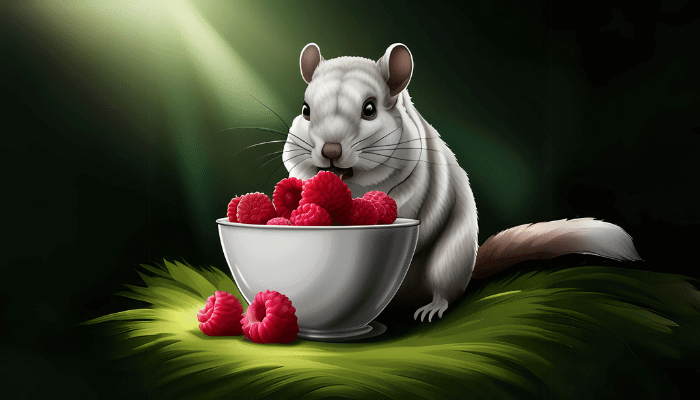
Can Chinchillas Eat Timothy Hay Exclusively?
No, chinchillas cannot eat Timothy hay exclusively. While Timothy hay should be the primary component of their diet, they also need chinchilla pellets to ensure they receive a balanced mix of nutrients.
Are Fresh Vegetables Safe for Chinchillas?
Fresh vegetables can be safe for chinchillas in small amounts. However, overfeeding them with greens can lead to digestive issues. Always introduce new vegetables gradually.
Can Chinchillas Eat Commercial Rabbit Food?
No, chinchillas should not eat commercial rabbit food. These two animals have different dietary needs, and rabbit food does not provide the right balance of nutrients for chinchillas.
Do Chinchillas Need Vitamin Supplements?
Chinchillas usually don’t require vitamin supplements if they are fed a balanced diet of high-fiber hay and chinchilla pellets. Providing a variety of safe foods is key to meeting their nutritional needs.
How often should I change my chinchilla’s hay?
You should change your chinchilla’s hay daily to ensure it remains fresh and free of contaminants.
How do I prevent my chinchilla from becoming overweight?
Preventing obesity in chinchillas is vital for their health. Ensure you measure their pellet portions accurately and limit treats. Encourage exercise by providing a spacious cage with room to run and jump.
What is the lifespan of a chinchilla with a proper diet?
Chinchillas can live for 10-15 years with a well-balanced diet and proper care. A nutritious diet plays a significant role in their longevity and overall health.
Is it essential to provide fresh water in a sipper bottle?
Yes, fresh water in a sipper bottle is essential. It prevents spillage and contamination, ensuring your chinchilla always has access to clean water.
